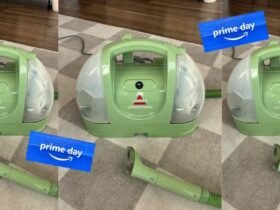Between work, parenting, errands, and everything in between, women are constantly juggling responsibilities. Whether it’s booking school appointments, managing meals, or caring for a family member, the daily list rarely shortens. And as the pace picks up, it’s easy for things to feel overwhelming.
That’s when having the proper support makes all the difference, especially regarding health. Modern healthcare facilities offer more than just treatment, from regular checkups to follow-up visits. They help women stay on top of it all.
Wondering how that works in real life? You’re not alone. In this post, we’ll show how women are using healthcare resources to manage both family wellness and their peace of mind.

Photo by Microsoft Edge on Unsplash
Making Use of Local Services for Ongoing Care
One of the biggest changes is how often families now visit local care centers for more than just illness. Walk-in clinics, pediatric services, and counseling are becoming part of regular routines.
Visiting an outpatient care center for checkups, follow-ups, or therapy is now common for many families. These visits often include services like screenings, vaccinations, and developmental check-ins. For mothers, it’s a chance to get expert advice early, before any bigger issue develops.
Facilities such as those found in family-focused hospitals offer more than just treatment. They provide support services that help parents feel confident in their decisions. This can include nutrition guidance, behavioral health support, and even help managing chronic conditions.
For many women, these centers reduce the need for emergency visits because issues are addressed early and with far less stress.
Supporting Mental and Emotional Well-Being
Health isn’t just physical. More women are now making mental and emotional care a priority for their families. They recognize that a child’s mood, behavior, and ability to cope with stress are just as important as their temperature or blood pressure.
Healthcare providers are responding with services that address emotional health directly. This might include family counseling, stress management tools, or parent-child therapy sessions.
For many mothers, having these services in the same setting as their child’s medical care makes it easier to access help without needing separate providers or appointments. It also sends a clear message to children: mental health is part of total health.
The result? Families who feel more supported—and more capable—of handling everyday challenges together.
Preventive Care Makes a Long-Term Difference
Another key way women are leading the charge in health management is through prevention. Instead of waiting for problems to appear, they are choosing regular wellness visits, early screenings, and learning from reliable health education materials.
This includes tracking immunizations, checking for growth delays, and knowing when to seek help. These visits offer a chance to catch small concerns before they become major ones.
Educational tools provided during these visits also make a difference. Parents leave with practical advice on topics like nutrition, sleep routines, screen time, and physical activity—all areas that affect a child’s development but aren’t always addressed at home.
Women are using these tools to build healthy habits for their families in everyday life, not just during doctor visits.
Managing Care for Multiple Generations
In many households, women manage care across multiple age groups. They may take their toddler to a wellness check in the morning and then spend the afternoon arranging home care for an elderly parent. It’s a heavy responsibility.
What helps is access to organized, reliable systems that support both ends of the care spectrum. Coordinated care services, flexible scheduling, and family-focused case management are becoming essential tools.
For example, outpatient services allow families to handle follow-up visits, lab tests, and counseling under one roof—without needing to make separate trips across town. This reduces time off work, travel stress, and the mental load of managing multiple care plans.
By using centralized resources, women are better able to balance all their roles without feeling overwhelmed.
Digital tools are also making things easier. Many families now use online platforms to schedule appointments, check results, and get follow-up reminders—all from a smartphone or computer.
Women are often the ones managing these digital tools for their families. They use them to track prescriptions, confirm visits, ask follow-up questions, or check vaccine records.
Patient portals, mobile apps, and email reminders mean less paperwork and fewer missed appointments. They also allow for faster communication with care teams, making health management feel more efficient and more personal.
By combining in-person support with digital convenience, families can stay more organized and avoid last-minute stress.
Final Thoughts
Women are doing more than just taking their families to the doctor. They’re learning, planning, and using every part of the healthcare system to stay ahead. This shift toward proactive, informed care is changing how families experience wellness. It’s not about waiting for problems anymore—it’s about preventing them, addressing them early, and making use of the full range of support available. In doing so, women are building not only healthier households but stronger communities, too.
Content Disclosure: She Owns It partners with others through contributor posts, affiliate links, and sponsored content. We are compensated for sponsored content. The views and opinions expressed reflect those of our guest contributor or sponsor. We have evaluated the links and content to the best of our ability at this time to make sure they meet our guidelines. As links and information evolve, we ask that readers do their due diligence, research, and consult with professionals as needed. If you have questions or concerns with any content published on our site, please let us know. We strive to only publish ethical content that supports our community. Thank you for supporting the brands that support this blog.



















Leave a Reply